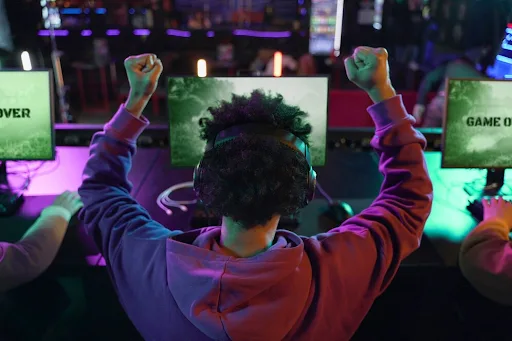5 minute read
In esports, rivalries are not limited to who wins or loses. They ignite enthusiasm, stir endless discussions, and leave remarkable impressions. These battles leave a mark as they change the viewpoint of both fans and players on the competition.
The Emergence of Digital Conflicts
With esports gaining popularity, gaming has become a billion-dollar industry and has slowly become a pastime. Rivalries have become a part of the culture—showdowns like G2 vs. T1 in League of Legends and OG vs. Team Liquid in Dota 2 capture millions of viewers globally. If you take advantage of the Melbet login BD feature, you can get even more excitement from these battles by betting on them. These intense matchups continue to drive engagement and redefine global entertainment.
These players’ clashes are larger than life. They transcend the game itself. They are rooted in history, play style, and team spirit. A perfect example of this is the unrivaled rivalry between Faker and Doinb. For esports to be different from the standard, fans need to be able to watch their teams regardless of which corner of the globe they come from.
Feelings in Esports
The emotional connection between players and fans in esports parallels the emotional relationships formed in conventional sports. Due to factors such as constant online engagement and unique connections arising from shared experiences, the bonds formed are much more profound. The reasons for emotion drivers are as follows:
- Team Support: People enthusiastically support their teams and engage in some of the most vigorous debates online.
- Player Stories: Their tale of struggles and cries for help transforms into a bone-chilling feat.
- Live Interaction: Fans can join chat rooms and communicate with their favorite players while watching live streams, which increases audience participation.
Every game transforms into a heart-touching occasion, as these emotions make it feel personal. Platforms like Melbet Insta Bangladesh add to the excitement by providing real-time updates and engagement opportunities. For many, esports is more than a mere game.
Competitive Pressure
The universe of esports is competitive and much more potent than its external appearance. The most intense matches hide essential context, and players undergo immense stress. This pressure is not solely for winning matches but for preserving their reputation and working through their brutal schedules. Teams and fans expect no less than perfection, meaning the pressure for all parties has unparalleled expectations.
Stress-Facing Esports Players
Esports players suffer through strong and consistent routines. Little to no breaks, rigorous daily exercises, and competitive tournaments leave players physically and mentally drained. The consistent need to perform one’s best leads to persistent stress. In South Korea, where esports is deemed a primary profession, it is so frequent that children in their early 20s retire due to exhaustion.
The pressure from millions of fans adds an entirely new level of stress. A small error in an An-filled game could generate a lot of negative feedback on the internet. Some athletes acknowledge how much their focus and self-assurance suffer due to this fear of consequences. Considering that mental health issues in the esports industry are still at a basic level, this developing problem is hardly given any attention.
The Psychological Impact on Fans
Fans undoubtedly put a lot of base-level feelings into e-sports, which is more than expected. Fan sentiments of joy after winning and frustration or depression after a loss are tangible realities. E-sports’ interactivity further amplifies these feelings. Fans can chat and watch players live, which makes every win or loss feel much more personal. This creates and strengthens the connection between players and fans.
Commonly, fans befriend certain athletes or even franchises and treat their wins as their own. This, too, comes with its cons. Intense rivalries between fans have been statistically proven to increase online conflicts, ultimately hurting the overall mental health of an individual. These scenarios clearly show how harmful virtual rivalries can get in the modern age.
Social Media’s Role in Escalating Rivalries
Social media is the new front of battlegrounds, where rivalries of the social media type exist. Using tools such as Twitter, YouTube, and Twitch, fans can directly communicate with players, teams, and each other. This instant connection enhances emotions, burning a sense of personal attachment to every intense match. Seldom do players refrain from trolling their opponents and those who become the target of memes, which further exacerbates the rivalry already present.
The players were in an interesting position. A single tweet or highlight clip can change how the public views a player. Every praise or condemnation is aired and replayed endlessly. Fans do not lag either; they contribute to the rivalry by flicking through memes and hashtags. Connecting globally helps ensure no peace for esports rivalries, thus keeping it raw but emotionally gripping.
Future Implications of Virtual Rivalries
Virtual rivalries are undoubtedly entertaining. However, they mean so much more. They are strong enough to alter how actual competitions are conducted. The culture surrounding esports will continue to evolve, as will people’s mental health and global relations. How fans and players conduct themselves within these rivalries will dictate the development of this digital frontier. The emotional stakes are never-ending and are guaranteed to get harsher.





